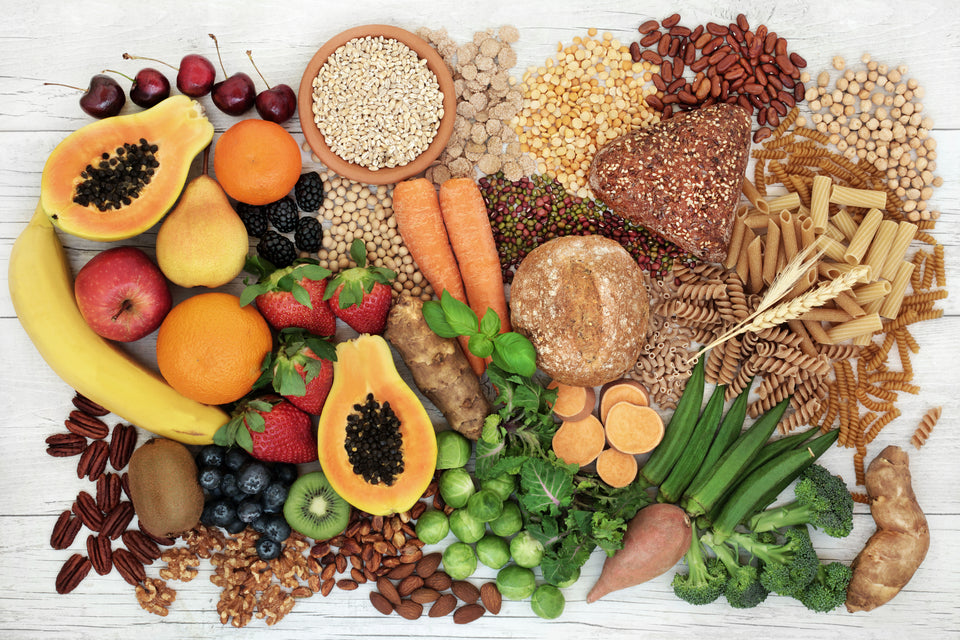Heart
Foods for Healthy Heart
The Role of Omega-3 Fatty Acids in Promoting Heart Health
Omega-3 fatty acids are recognized as a key nutrient for heart health. These vital fats have been widely celebrated for their ability to mitigate the risk of cardiovascular diseases. Since omega-3 fatty acids, a variant of polyunsaturated fat, can’t be self-produced by our system, they need to be procured through what we consume daily. Foods that are rich in omega-3 fatty acids like oily fish, oilseeds, nuts, and certain oils can undeniably augment a diet aimed at cardiovascular wellness.
A slew of studies have unanimously confirmed that including omega-3 fatty acids in your everyday dietary intake can bolster heart health. The remarkable ability of these fats to reduce the levels of triglycerides in blood propounds one of their standout benefits. Elevated triglyceride levels correlate with a heightened risk of heart diseases. Omega-3 fatty acids’ propensity to bring down triglyceride levels consequently enhances overall heart health.
Moreover, omega-3 fatty acids exhibit a critical function in curbing inflammation within the body. Chronic inflammation poses a prevalent threat in both the emergence and progression of heart conditions. The consumption of omega-3 fatty acid-rich foods can be leveraged as a preventive measure against inflammation, thereby ensuring cardiovascular health. Omega-3 fatty acids have been found to mitigate the generation of inflammatory agents, such as cytokines and selected prostaglandins, while fostering production of substances with anti-inflammatory attributes.
Aside from diminishing triglyceride levels and tackling inflammation, omega-3 fatty acids have also displayed their prowess in reducing blood pressure. The susceptibility to develop heart ailments significantly increases due to hypertension, and research has demonstrated that consistent consumption of omega-3 fatty acids can play a part in lowering both systolic and diastolic blood pressure. With the integration of these heart-healthy nutrients in one’s diet, one may witness a decrease in their overall blood pressure figures.
Another noteworthy contribution of omega-3 fatty acids pertains to heart rhythm. They specifically help to fend off irregular heartbeat occurrences by maintaining the stability of heartbeat-regulating electrical signals. This can prove vital in thwarting serious cardiovascular conditions like arrhythmia.
To fully leverage the advantages of omega-3 fatty acids, it’s essential to select the appropriate sources and embed them into a balanced diet. Oily varieties of fish, such as salmon, mackerel, and sardines, are particularly abundant in these key fats. Incorporating a few servings of these fish into your weekly meals can appreciably contribute to heart-focused nutrition. For non-fish eaters, other food sources of omega-3 fatty acids encompass flaxseeds, chia seeds, walnuts, and soybeans.
Wrapping up, the instillation of omega-3 fatty acids into your dietary routine is a pivotal move in boosting heart health. These crucial nutrients provide several benefits, including lowered triglyceride levels, inflammation combat, blood pressure reduction, and stability of heart rhythm. By incorporating omega-3 dense foods such as oily fish, nuts, and seeds into your meals, you are paving the way for a robust and healthy heart.
Incorporating Fiber-Rich Foods for a Strong and Healthy Heart
Boosting Heart Health with Fiber-Enriched Foods
Prime heart health heavily leans on integrating fiber-packed foods into our meal plans. The indigestible carbohydrate, commonly referred to as fiber, notably fosters a robust and thriving heart when consumed regularly— reducing the risk of heart ailments and circumventing diverse cardiovascular complications.
Fiber’s most potent contribution to heart health lies in its potent ability to curb cholesterol concentrations. An uptick in low-density lipoprotein (LDL) or harmful cholesterol escalates the menace of heart diseases. Soluble fiber, present abundantly in food items like oatmeal, varying types of beans, lentils, as well as fruits like apples and oranges, curbs LDL cholesterol by impeding its absorption within the intestines. Regularly consuming fiber-enriched diet is key to keeping cholesterol regulated and shielding heart health.
Factoring in a high-fiber diet also fosters balanced blood pressure. Research has shown a distinct correlation between diets steeped in fruits, vegetables, whole grains (naturally brimming with fiber), and lowered blood pressure. Incremental intake of fiber-filled foods like broccoli, wholegrain bread, carrots, and brown rice can help reinforce healthy blood pressure and lessen the risk of hypertension, a notorious catalyst for heart disease.
Besides its cholesterol-regulating and blood pressure-balancing roles, fiber also serves to help sustain an ideal body weight. Loading up on such foods satiates us for longer periods, warding off overeating tendencies and promoting weight control. When we opt for fiber-rich choices such as legumes, whole grains and vegetables, we feel fuller and are less likely to snack on unhealthy, high-calorie foods. Healthy weight preservation is a vital cog in the wheel of heart health left unturned, it may provoke cardiovascular complications.
Finally, regularly infusing fiber-loaded fare into our meals enhances overall gut health, which reflects positively on heart health. A steadily operating digestive system ensures optimal nutrient uptake and waste expulsion. Routinely consuming a spread of fiber-packed foods nourishes the gut microbiome and betters digestion, helping stave off conditions like constipation and diverticular disease.
To encapsulate, infusing fiber-rich foods into our diets is integral to nurturing a thriving heart. These foods actively tamp down cholesterol levels, foster healthy blood pressure, help manage weight, and fortify the digestive system. By incorporating fiber-packed options such as fruits, veggies, whole grains, legumes, and nut varieties in our food repertoire, we can mitigate heart disease risk and augment overall cardiovascular health.
Antioxidant-Rich Foods: Protecting Your Heart from Damage
Preserving heart health involves a vital role played by antioxidant-rich foods integrated into your everyday meals. Known for their cell-protective attributes, antioxidants combat damage from free radicals – unstable molecules, that when unchecked, can elicit oxidative stress, leading to a multitude of health problems such as heart disease.
One significant advantage of ingesting antioxidant-filled foods is their capacity to mitigate bodily inflammation. Persistent inflammation is correlated with high-risk heart disease due to the potential for blood vessel harm and the unchecked formation of arterial plaques. By making antioxidants a staple in your diet, you arm yourself against inflammation and spare your heart from additional harm.
Berries, including strawberries, blueberries, and raspberries, are excellent carriers of antioxidants. These delightful fruits are abundant in anthocyanins — a specific antioxidant associated with lower heart disease incidence. Incorporating a few berries into your morning cereal, or serving them as a snack can add a delicious, heart-healthy twist to your meals.
Dark chocolate, another food dense in antioxidants, also contributes to heart health. Boasting flavonoids, dark chocolate has proven to enhance heart health by decreasing blood pressure, increasing blood circulation, and bolstering overall vascular function. Remember to choose dark chocolate with a high cocoa content (70% upwards) to make sure you are receiving maximum antioxidants with minimal added sugars.
Green leafy vegetables, such as spinach, kale, and Swiss chard, also rank high as antioxidant sources. Packed with vitamins, minerals, and phytochemicals, they help curb oxidative stress and inflammation within the body. By incorporating various green leafy vegetables into your diet, you ingest essential nutrients and antioxidants that bolster heart health.
Nuts, especially almonds and walnuts, are another beneficial inclusion in a heart-healthy diet. Laden with antioxidants, healthy fats, and fiber, consuming these nuts helps reduce potential heart disease. Adding a handful of nuts to your daily meals or snacks brings both a satisfying crunch and a dose of heart-helping antioxidants.
Beyond these specific antioxidant-rich foods, maintaining a balanced and diverse diet, comprising an array of fruits, vegetables, whole grains, lean proteins, and healthy fats, is crucial. In doing so, you equip your body with a varied mix of antioxidants supporting your heart health.
It is important to remember that antioxidant-rich foods, while beneficial for heart health, do not offer an all-encompassing solution. Overall heart health requires a wholesome lifestyle, encompassing regular physical activity, a healthy weight, and the avoidance of smoking and alcohol overconsumption.
In summary, integrating antioxidant-rich foods into your diet creates a robust defense protecting your heart from harm. Berries, dark chocolate, green leafy vegetables, and nuts are all packed with antioxidants that battle inflammation, diminish blood pressure, and bolster overall heart health. Aiming for a comprehensive diet filled with a variety of antioxidant-rich foods, in addition to maintaining heart-healthy lifestyle habits, promises a robust and vigorous heart for many years to come.



